Note: I wrote a smaller recap on the rest of the 2021 British Olympic team. This is my coverage of the decision to not award Becky Downie a team spot.
The argument over whether Becky Downie should have made the 2021 British Olympic team depends on Great Britain choosing between trying for an uneven bars medal, or trying for a medal in the team competition.
There are three superpowers in women’s artistic gymnastics (WAG), the United States, Russia, and China. But after that top tier, a strong Tier II has developed as well. Its three members are Great Britain, Italy, and France. Great Britain and Italy are the only two programs who have managed to play “spoiler” in the team competition by winning a bronze medal. With the exception of Italy-2019 and Great Britain-2015, a non-traditional power hasn’t managed to win such a medal in the modern history of the sport.
And then there is France, who is coming up just behind Italy and Great Britain. France’s medal chances in the team competition took a hit with the injury to Lorette Charpy. But the good news for France, Charpy will be back for the next Olympic cycle. Even more good news, Aline Friess was France’s most successful gymnast in the All-Around the last time the World Championships were held, and she’s just 17 years old, the most ideal age for a 2024 return.
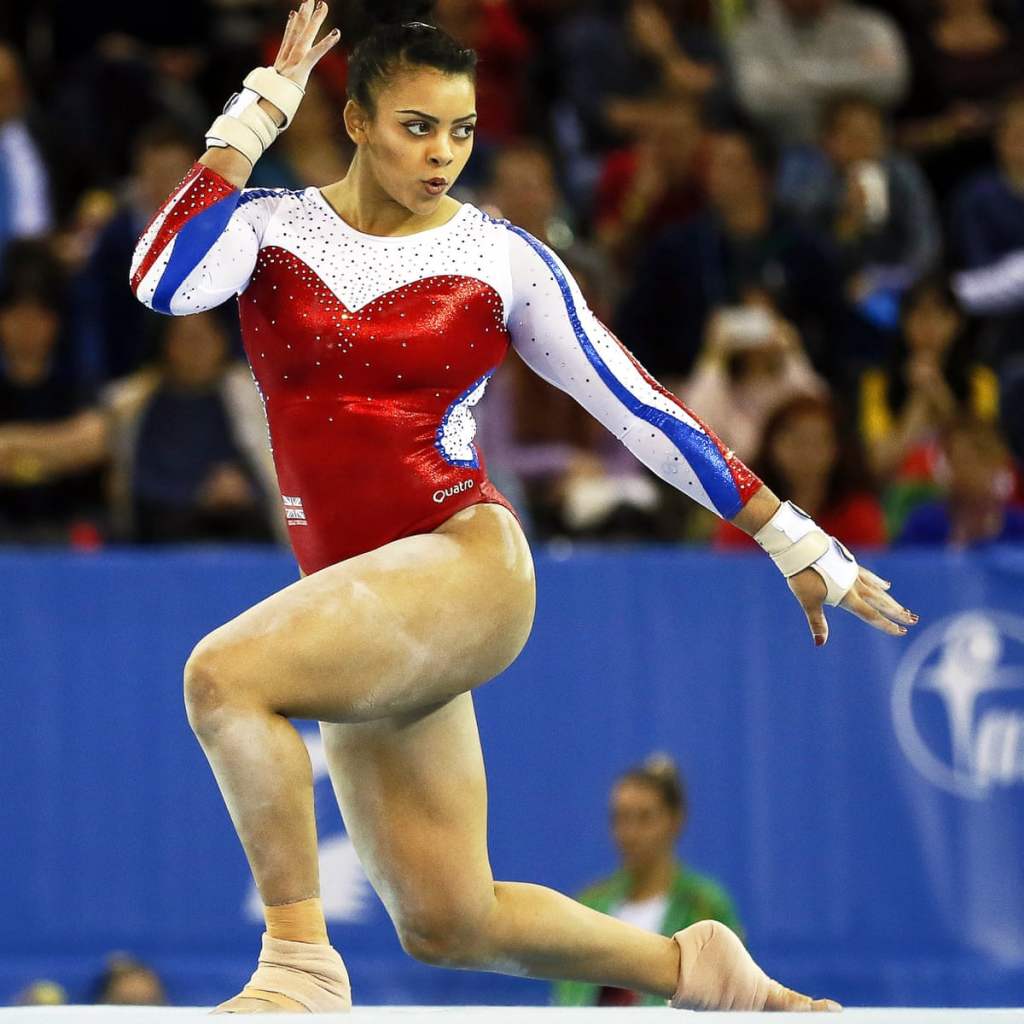
Also looking ahead to 2024 is Kaylia Neymour. I’d say with confidence she’s the gymnast I feel is the most likely to have success amongst Western European juniors. On the flip side, Melanie de Jesus dos Santos is one of the most respected gymnasts in all of Europe. At 21 years old it wouldn’t be all that hard for her to come back for the 2024 Olympics. Maybe she would consider retirement? But I doubt it because there is something special about 2024 for France.
France will have homefield advantage at the next Olympics. Coupled with a strong French program where its stars seem to be aligning nicely, that is a nightmare scenario for everyone else. To win a team medal most nations need to have two things happen. First, one member of the Tier I must fall to 4th place (China or Russia). Secondly, all the remaining programs must beat out the Tier II programs, the best of the non-traditional superpowers to get that open spot on the podium.
Tokyo-2021 also has an unusual 4-person team format, the smaller the team size the more likely it is for a mid level power to upset a traditional power. If you are Great Britain, Italy, or even Canada and the Netherlands and you have the option to go all in on a team medal in 2021, that’s a smart play. Because 2021 represents the greatest potential we have ever seen* for a non-traditional power to snag an Olympic team medal in modern WAG history.
*The closest example is Japan winning a team bronze medal at the 1964 Tokyo Olympics
Great Britain finished in 6th place at the previous World Championship. All but one member of that team has been replaced by a young phenom. Amelie Morgan won a medal only a few weeks ago at the 2021 European Championships. At that very same competition Jessica Gadirova emerged as the unexpected breakout star of the year, and her twin sister Jennifer Gadirova has every reason to be just as good.

With three young stars on its team, it is very easy to see why Great Britain feels they can improve significantly over their previous performance at the last World Championships. All while a bronze medal finish in the team competition is more reachable than ever before. And I say this based not on the merit of Great Britain’s previous results, but a program who has three very young gymnasts we don’t know much about. Great Britain’s status is a program with a low floor, but I’m not sure just how high the ceiling of this team currently is.
So while a majority of the Gymternet feels having Becky Downie on the team to get an uneven bars medal is Great Britain’s only real shot at an Olympic medal, the team medal option is not as crazy as it sounds. I wouldn’t say they have a high chance of joining Russia and the United States on the podium, but I wouldn’t dismiss it as a “doomed to fail” strategy either.
I’m not going to disrespect Becky Downie by saying she doesn’t have the talent win a medal on the uneven bars in Tokyo. She’s the reigning silver medalist on the uneven bars at the World Championships. I’d say if you sent Becky Downie as a specialist and the rest of the team as a 4-person lineup, I’d say its more likely Becky comes back with a medal than the team comes back with a medal.
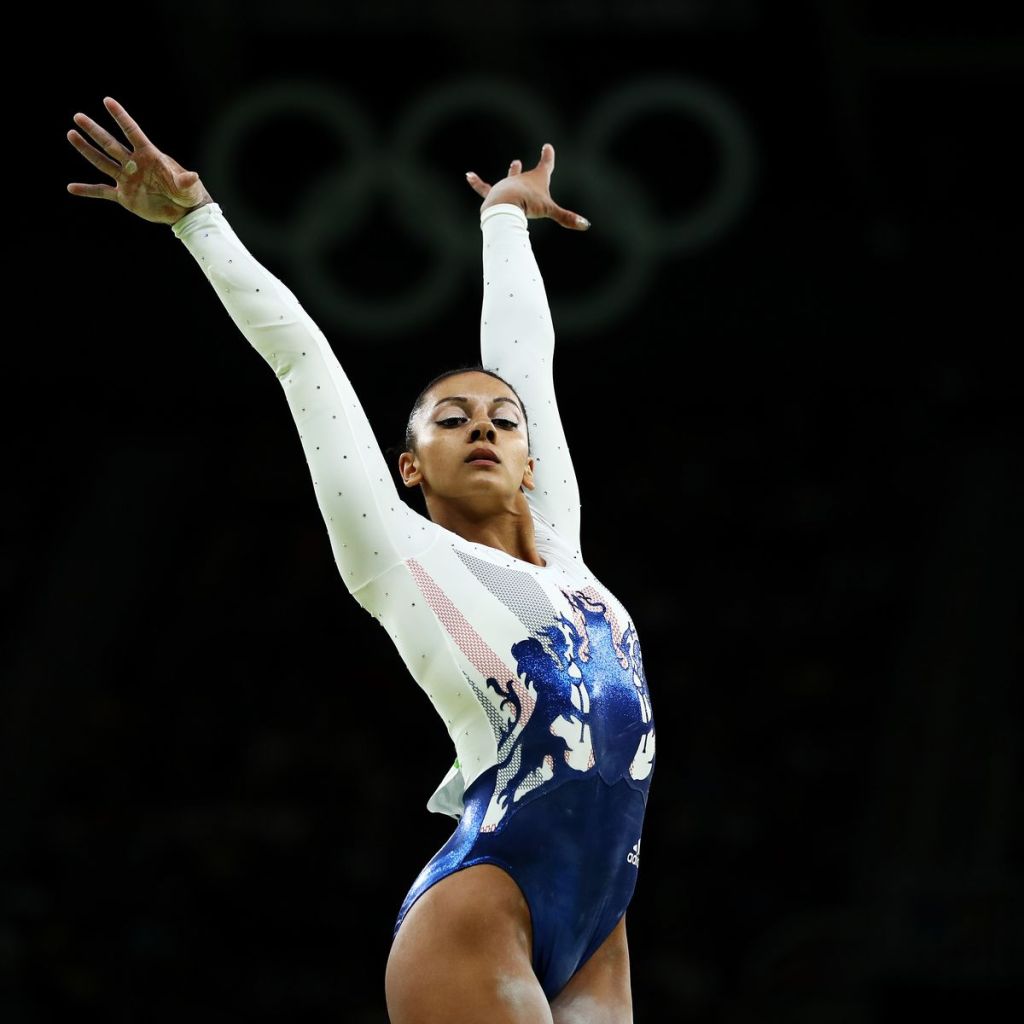
But with Becky Downie all your eggs are in one basket. The entire team medal stretegy is justified by a single 30 second routine. Whereas with a team-centric lineup Great Britain lives and dies based on a test of endurance in Team Finals without the possibility of one bad routine killing everything. It is a dilemma where it is more likely Becky wins a medal on the uneven bars, but also comes away with the highest chance of never getting close to any medal at all.
Note: I also want to point to Spencer’s take, specifically how he cited the merits of how British Gymnastics could have kept Downie on a team lineup with even higher scoring potential, but had more redundancies in place in the event something went wrong.
Furthermore, the uneven bars is going to be a catfight. Sunisa Lee and Nina Derwael are returning from the 2019 World Championships podium. Angelina Melnikova finished 4th in that apparatus finals and she’s the unusual case of a gymnast who is becoming a more dominant medal threat the older she gets. That’s without factoring which Russian young gun can also challenge for an uneven bars medal while China is certainly likely to have a top tier medal threat as well.
The point is, all the attention is being paid to Becky Downie’s silver medal. But additional attention should be paid to just how competitive this apparatus is as well. The decision between a team-centric lineup and having Becky on the team can probably be described as somewhat close to a 50/50 decision, and that’s the problem.
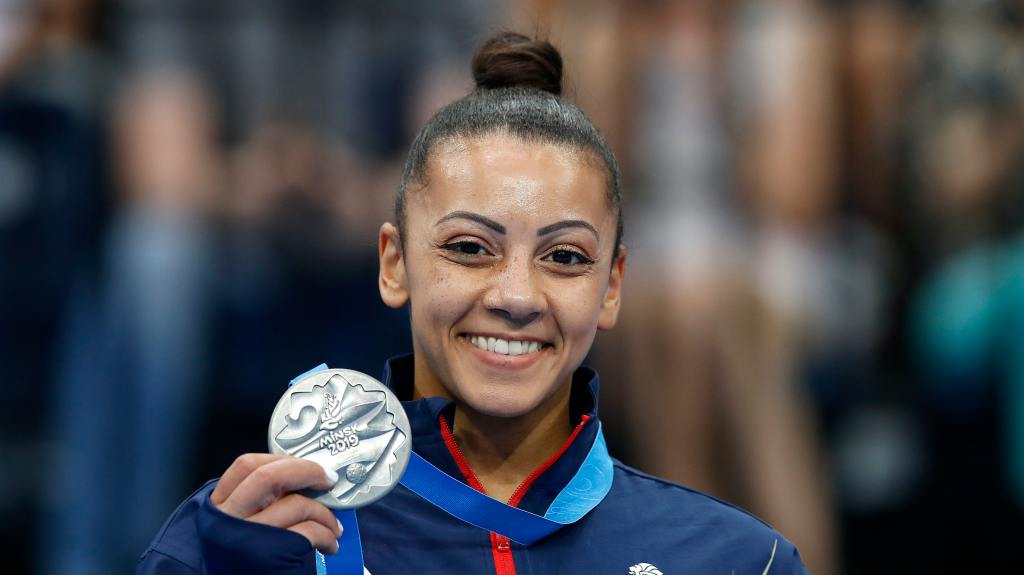
Becky Downie didn’t make the team. Her sister Ellie Downie also didn’t make the team. Both are legends of the British program and amongst the strongest gymnasts it has ever produced. But both gymnasts were advocates of #GymnastAlliance and directly opposed British Gymnastics.
Whistleblowers are at their most vulnerable whenever there is a 50/50 decision to be made. And that’s exactly what occurred in 2021 when British Gymnastics was tasked with a 50/50 decision and choose against the whistleblowers. This team selection will ultimately be terrible for #GymnastAlliance, represents a massive setback to the movement, and this decision will leave a black mark on British Gymnastics in the same way Maggie Nichols scared USAG’s 2016 selection process. It discourages future gymnasts from coming forward.
Honestly, I don’t know if leaving Becky Downie off the Olympic team was the best option of the two decisions. If I spend a lot of time arguing on behalf of the gymnast who took her spot, it is only because so much rhetoric has been dedicated to defending Becky Downie, that in my opinion not enough has been paid to the gymnast who took her spot. I really don’t know what I would have done, and British Gymnastics will be either roasted or validated based on how the delegation fares in Team Finals.
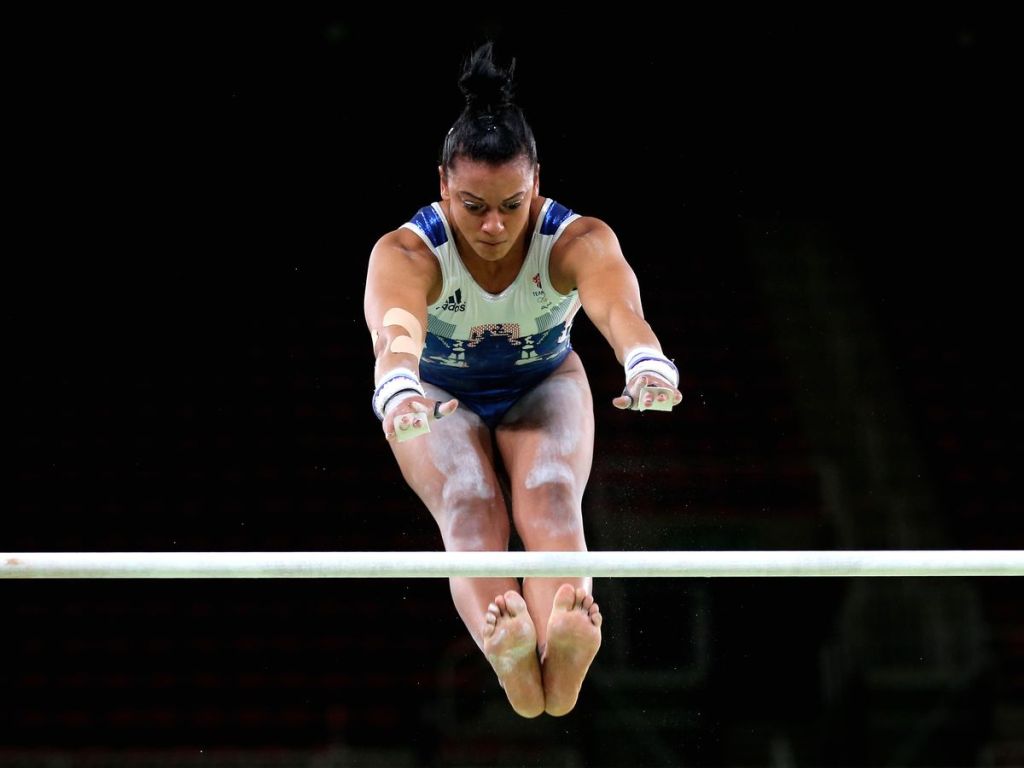
The nerd in me who likes playing with strategy says both sides have equal merit. But the gymnastics fan in me really wants to see Becky square off against Nina and all the others in an epic apparatus final.
The Downie family was impacted by a personal tragedy right as the Olympic team was to be decided, that event didn’t impact the selection process. It impacted the way the team was announced. The family tragedy occurred at a time where British Gymnastics felt neither Downie belonged on the team, but only Ellie Downie had removed herself from consideration. Becky was still attempting to win a spot for herself.
That may not be the version of events you heard, but that is how it all went down.
What angers me about this situation is that for weeks the British Gymnastics Olympic selection process was a farce whereas the national governing body had selected their team, and was only checking the boxes to give the illusion they had fairly considered everyone else. The reason I say this is because the British team was announced today (June 7th).
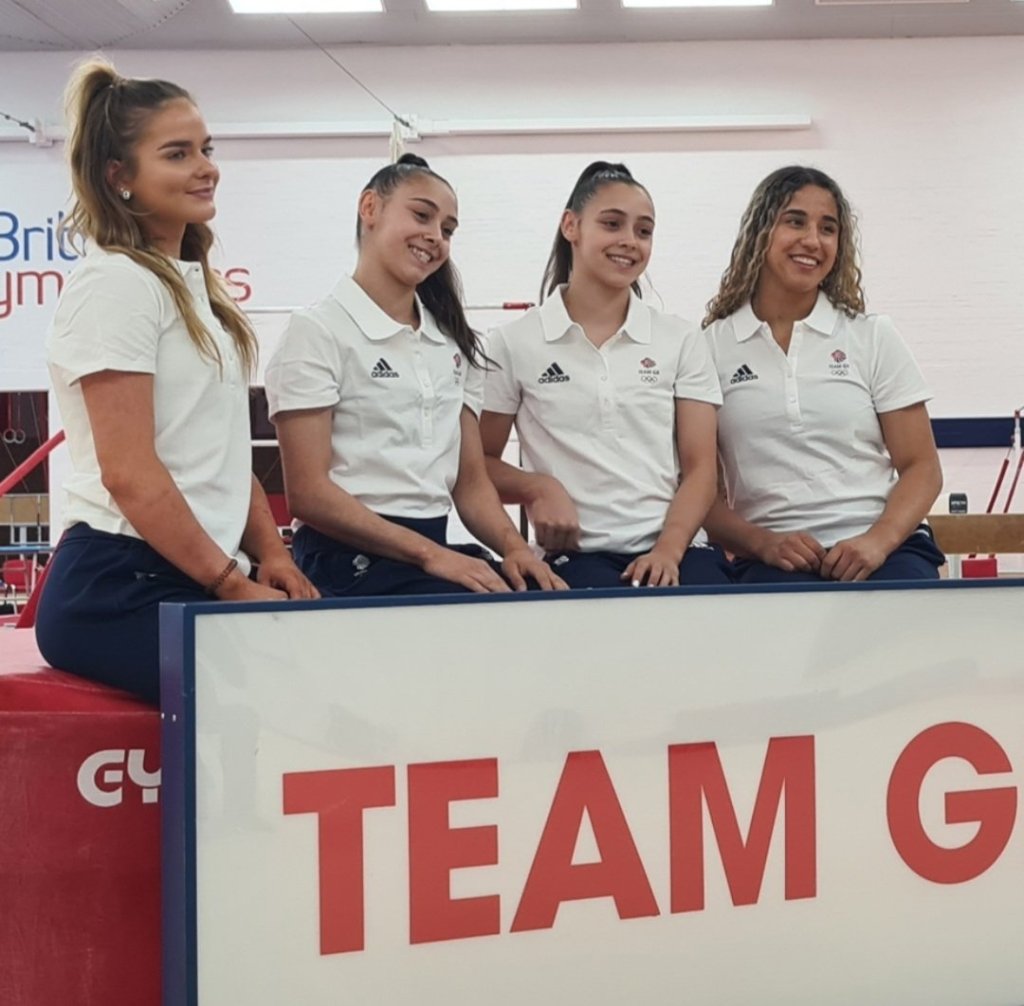
But I first heard about this lineup (including the alternate) on May 10th thanks to someone with connections to British Gymnastics. The information was solid and even explained the rationale behind the lineup while asserting it was unlikely to change. But it wasn’t my information to share so I kept quiet about it.
This means that for 28 days Becky Downie and the Gymternet were being sold on a narrative that she still had a chance. The reality was, there was very little Becky Downie could do and many inside the British program seemed to understand that. Meanwhile Becky herself was living on a false hope, while dedicating her time and body in an attempt to accomplish a goal that was so far out of reach.
It was more blood, sweat, and tears for Becky. But there was emotional pain involved in this as well. The delay in announcing the team meant Becky was informed of her omission from the team on the very same day she buried her little brother. Becky also spent three weeks on an extended trails process she is now publicly questioning why it even occurred because in her own words “what we all know now.”
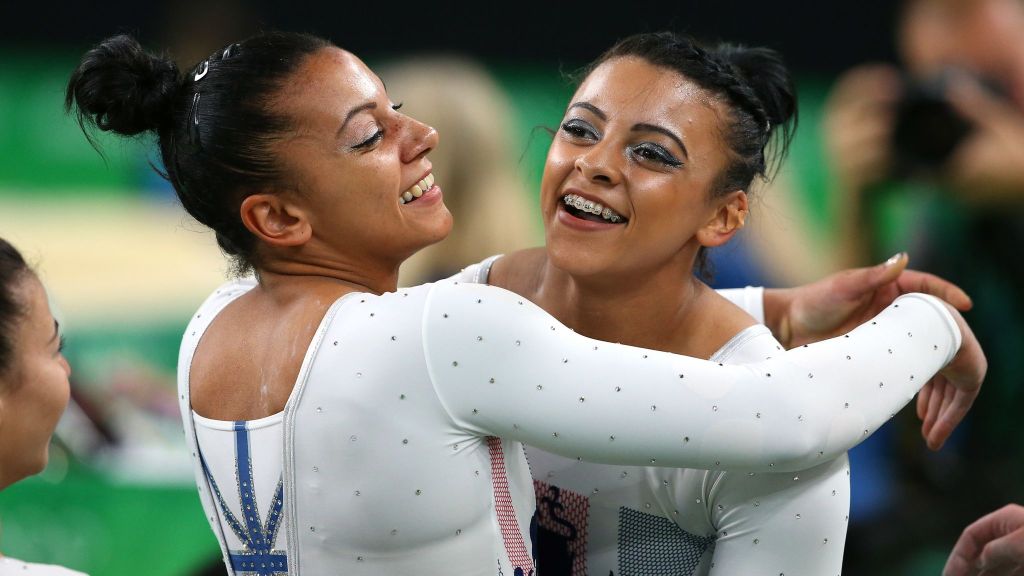
At the beginning of this article I implied British Gymnastics was smart in its selection process without countering with all the examples of stupidity they displayed. There, are plenty of examples to talk about.
The selection process first began to break down after a gag order regarding trial scores led to allegations of favoritism involving one particular club (Park Wrekin). But then the scores were released which created a second dilemma. Releasing the scores was to the benefit of Park Wrekin, the very club being accused of favoritism. The scores proved their gymnast had been performing better than expected.
Meaning either British Gymnastics allowed the scores to be revealed now that it was in the interests of Park Wrekin to do so, or Park Wrekin was able to release the scores without British Gymnastics’ approval because they were such a politically connected club, confidentiality rules didn’t apply to them. This created a laughable scenario where intentional or not, an act of favoritism was committed in order to disprove allegations of favoritism.
That fiasco set the tone for what was to come later, whereas British Gymnastics mismanaged three different equipment brands. One brand was the British Gymnastics standard (Gymnova), one was the Olympic standard (Senoh), and the last was the European Championships standard (Spieth). British Gymnastics found itself in a situation where it was constantly switching between these brands.
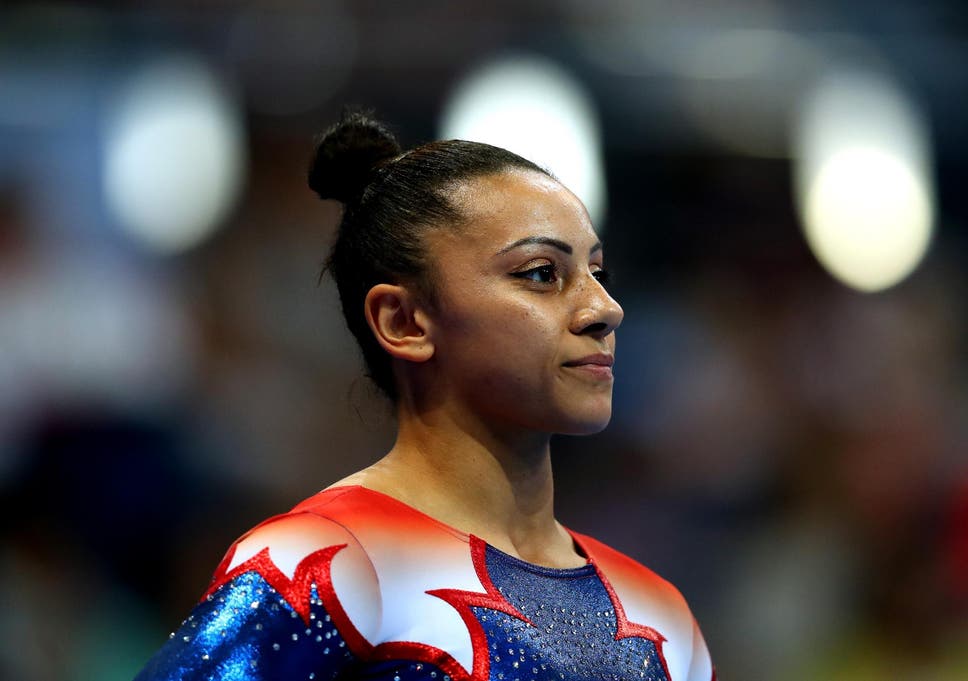
British Gymnastics switched from their standard (Gymnova) to the European Championships standard (Spieth), while miscommunicating with the Downie family that they would then switch back to their original British standard (Gymnova) once the European Championships were over. Park Wrekin also expressed complaints over the constantly reshuffling between the two standards and how it was a disservice to their gymnasts.
But the issue disproportionately impacted the Downie sisters as they were the only high profile gymnasts who train on Senoh (the Olympic standard) in their home gym and had to manage changes between three equipment brands. Whereas other clubs were expressing discontent over being forced to switch between just two different brands.
As for Perk Werkin and allegations of favoritism? This club had a strong contender for a spot on the Olympic team and her coach (Christine Still) was the wife of the national team coach (Colin Still), the man with the greatest say in who makes the final team. Meaning someone involved in the selection process could simply pick the gymnast his wife coaches.
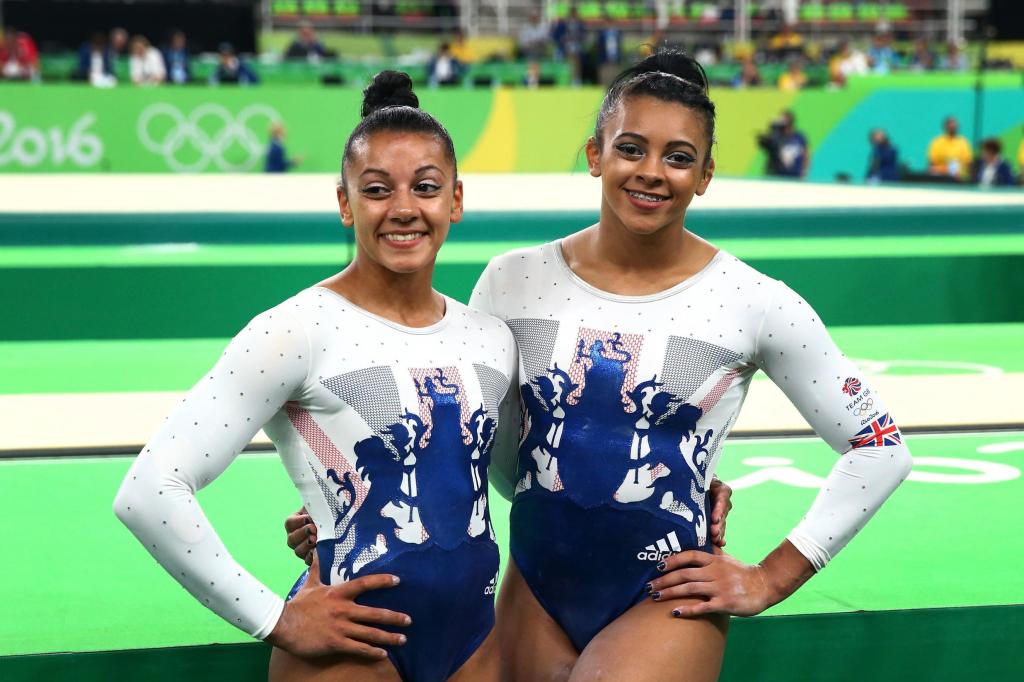
This conflict of interest was of astronomical proportions should have never been allowed to exist. That alone should have triggered at the very least a recusal of some sort. But it was even worse when both coaches have a previous history of let’s just say ill-advised coaching behavior. In 2010 a former gymnast alleged they insisted she continue training after being diagnosed with a fracture in her lower back. The resulting decision left the gymnast unable to give birth naturally as an adult due to the longterm damage this injury caused.
If the existence of an old allegation which #GymnastAlliance could have latched onto wasn’t enough, Colin Still was caught at the forefront of a more recent controversy. It was revealed he referred to a British Olympic medalist as a “fat dwarf” in an Email. All of these things combined were more than enough to justify the ouster of Colin Still in the context of the #GymnastAlliance reckoning, but that didn’t happen.
The saddest part in all of this was that for British Gymnastics the concept of a 4+2 model was the perfect solution for this entire situation. Had British Gymnastics simply secured a #5 spot they could have sent both the team they wanted and the specialist they wanted. British Gymnastics shares much of the blame for incompetently mismanaging Becky Downie and not encouraging her to chase a specialist spot. But there is more to this story.
The truth is: Every organization had a hand in failing Becky Downie.
If British Gymnastics used Becky Downie to qualify an Olympic team only to throw her away with no chance to fight back the second she was no longer of service to them, it is because FIG’s qualification model encouraged this behavior. The 4+2 model forced gymnasts to choose between committing to their team or committing to an individual path to the Olympics. But it had a flaw.
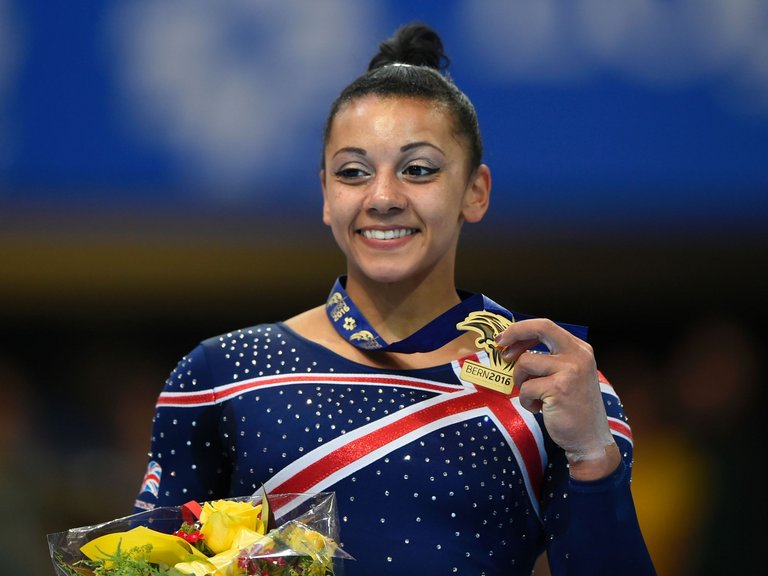
This model created situations where a gymnast had to commit to one option or the other, but forced them to do so before they had time to figure out which option was the best route for them. Jade Carey committed to an individual option too early and it may have cost her an Olympic gold medal in the Team Competition. With Becky Downie the reverse had occurred and she didn’t realize she needed to abandon her team and pursue an individual route until it was too late.
At the 2018 World Championships Great Britain had failed to qualify to Team Finals. In 2019 Great Britain was operating under the assumption that they were weak and needed every strong gymnast they could muster in order to safely qualify an Olympic team. But overnight, the program became so strong it had more quality gymnasts than it knew what to do with and needed to discharge some of them in the form of +2 spots.
Part of the problem is Great Britain grew at a staggering rate. They went from “can’t qualify to team finals” to being forced to consider if they are close enough to a team medal to justify jettisoning specialists in just an 18-month period. Another part of the problem was that Covid-19 exasperated an already flawed qualification process.
What was Great Britain supposed to do?
Everyone says they should have told Becky Downie they were going to take a team-centric All-Around route at the expense of Event Finals. But that is all based on what we know about Great Britain’s performance circa 2021. Great Britain conducted themselves in 2019 based on where they were as a program back then. Before three young phenoms took over the program. Before a Pandemic extended everything by a year which a 29 year old was not suited to handle while maintaining a strong 4-event gymnastics profile.
Yes, a whole lot of this I’d put on British Gymnastics being incompetent and unable to figure out how to secure a #5 spot. But Gymnastics fans had long mocked the tactics of various national coaches and whether Tom Forster or Valentia Rodionenko actually knew what they were doing. If British Gymnastics is guilty of stepping on a mouse trap because they didn’t look where they were walking, FIG is guilty of laying mouse traps all over the house for them to step on.
The 4+2 model created a situation where a gymnast was too important to not be at the 2019 World Championships, but left open the possibility she’d have limited options if she was deemed not important enough within the next year. With 2004-aged gymnasts turning senior after the World Championships and teams shrinking from 5 to 4, this was a scenario that had been made easily possible. Covid-19 only made it even more possible.
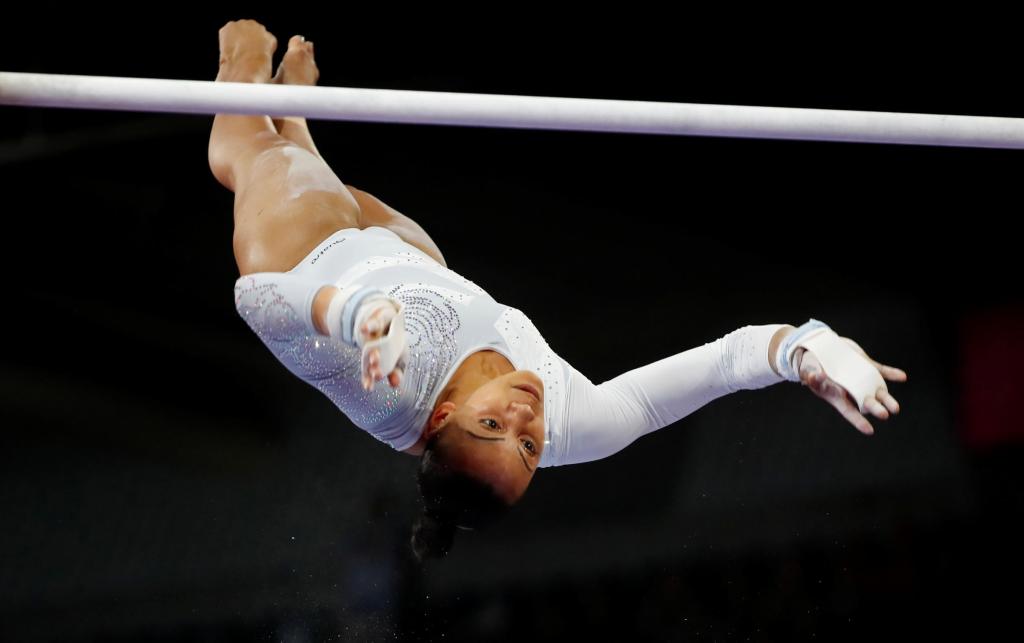
Great Britain doesn’t have the luxury of China and the United States where they have a relatively easy continental championships as a safety net. Or the benefit Russia and Italy had by knowing well in advance that those specialist spots weren’t a luxury, but a necessity to complement their excess talent.
And I’d also throw blame on merit-based team selection processes. Culture norms dictate every Western democracy should run their Olympic programs where merit takes priority over everything. But at a certain point merit has to give way to common sense. Gymnastics is a complex sport and you can’t write a rulebook that will account for every unpredictable situation.
Obviously, I’m pretty upset with British Gymnastics. And I even wonder if they wanted to punish Becky Downie for her #GymnastAlliance advocacy. In my opinion, a big part of the problem is these national governing bodies are so focused on maintaining the appearance that their selection process is fair and that everyone has an equal chance, that they can’t come clean and have an honest conversation when that is no longer the case.
We can agree or agree to disagree on who the 4th member of 2021-Team GB should have been. And this article is in no way an attempt to convince readers towards one side or the other. But one thing every reader of this article will certainly agree on, regardless of whether she should be going to Tokyo or not, Becky Downie never should have been treated this way.
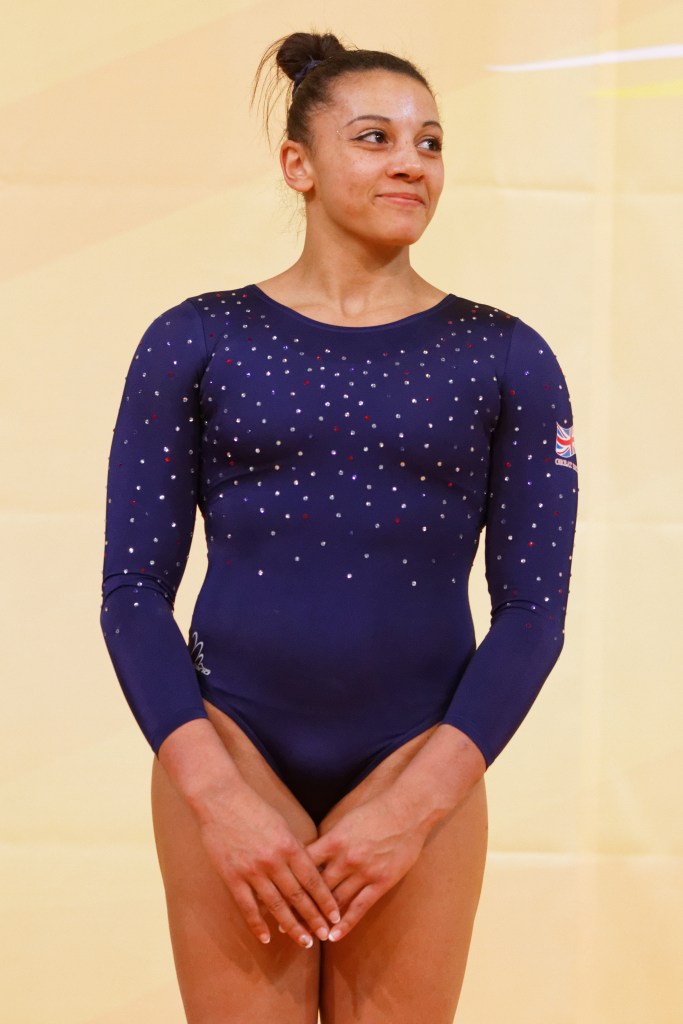


Wait why do you think British Gymnastics didn’t want Ellie on the team?
LikeLike
I don’t know if they didn’t want her. Her scores at trials were very low- I think she may be injured, perhaps?
LikeLike
it’s not that they didn’t want her, she was injured in the second half of 2O2O then withdrew from the final trials due to the passing of her brother so there was no chance for her:(
LikeLike
Ellie decided, after the death of her brother, that she wanted some time out of elite training. It was her decision.
LikeLike
As brilliant as the Downie sisters have been, Ellie’s poor early trial results hint at an undisclosed injury. Becky was outstanding at 2019 World’s, but based on a few factors, I don’t think it was just a political decision. Yes it took her 12 years to medal, but it was because of a lack of consistency. Is it just me that remembers in Rio that she clipped the bar and ended up out of bars qualification because of this? 2018 World bars final went wrong. Multiple finals haven’t gone well, despite her being incredible when she hits.
It’s reminding me a little of Alicia Sacramone in 2012…messed up in 2008, still fantastic in 2012 but not picked because of the “what ifs”. If any of the other team members were to get injured, could Becky really step in easily to perform a DTY or a high scoring floor routine?
Just my two cents anyway
LikeLike
just want to add: why do people count out Fan Yilin when making UB predictions? She also has a high difficulty with few skills — few built in deductions and the judges love that, she will surely factor in
LikeLike